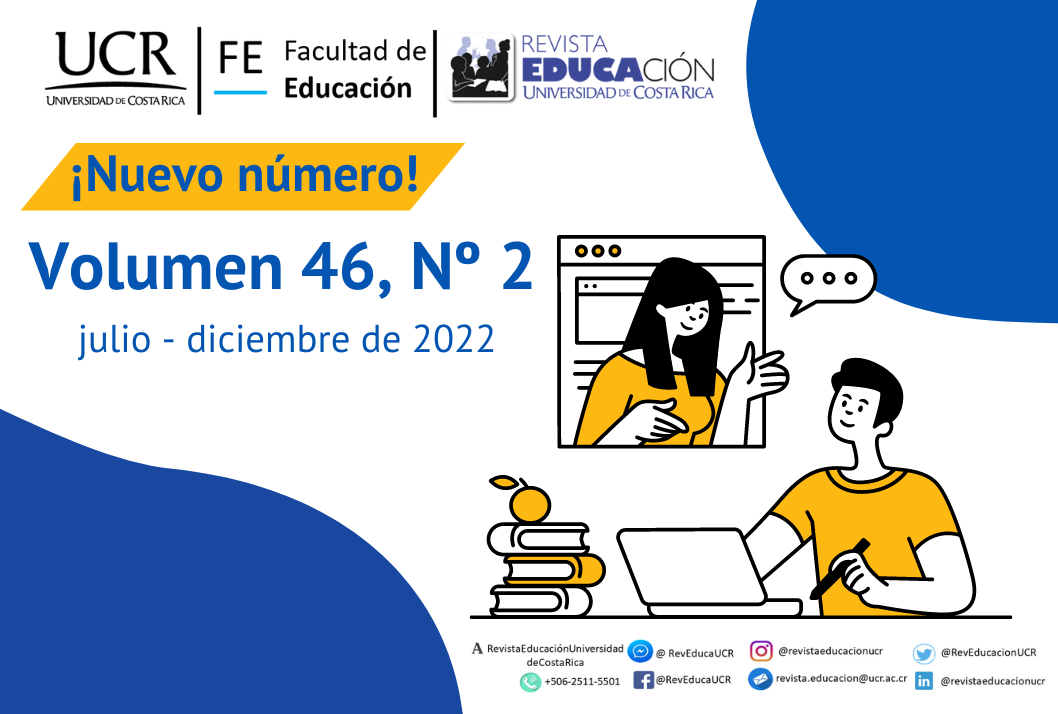Resumen
Los libros de literatura infantil, en el ámbito hondureño, son escasos, foráneos, y poco relacionados con la cotidianidad de las familias, además de que no siempre son recursos disponibles en los hogares. Esta situación limita el contexto alfabetizador de las familias con bajo nivel socioeconómico. En vista de lo anterior, el presente estudio explora los significados que diez familias de la colonia Villanueva de Tegucigalpa, Honduras, con niñez en edad preescolar, dan a los libros de literatura infantil contextualizados creados para este propósito y sus experiencias de lectura con este recurso. La literatura infantil contextualizada se define como aquella cuyo texto e imágenes ilustran el contexto local de la comunidad de estudio. En este diseño cualitativo fenomenológico se utilizaron, como herramientas de recolección de datos, la observación directa de sesiones de lectura. También se realizaron entrevistas semiestructuradas con la misma muestra de familias. Los datos recabados fueron analizados a través del modelo fenomenológico interpretativo, con asistencia de MAXQDA. En cuanto a los resultados obtenidos, la literatura infantil contextualizada evidenció ser un medio que enriquece el contexto alfabetizador, porque motiva a la adultez lectora y a la niñez en edad prebásica[1] a participar en actividades de lectura, y a conversar sobre su realidad social, por ello es recomendable su uso.
[1] Nivel de prebásica: grados de escolaridad previo al primer grado de educación primaria o básica en Honduras.
Citas
Cómo citar
Aguilar-Domínguez, L. M. (2022). Leyendo historias contextualizadas: experiencias de lectura
familiar en una comunidad hondureña. Revista Educación, 46(2). http://doi.org/10.15517/revedu.v46i2.4
Referencias
Andrés, M. L., Urquijo, S., Navarro, J. I. y García, M. (2010). Contexto alfabetizador familiar: Relaciones con la adquisición de habilidades prelectoras y desempeño lector. European Journal of Education and Psychology, 3(1), 129–140. https://www.redalyc.org/pdf/1293/129313736010.pdf
Carroll, J. M., Holiman, A. J., Weir, F. y Baroody, A. (2019). Literacy interest, home literacy environment and emergent literacy skills in preschoolers [Interés por la alfabetización, entorno de alfabetización en el hogar y habilidades de alfabetización emergentes en preescolares]. Journal of Research in Reading, 42(1), 150–161. https://doi.org/10.1111/1467-9817.12255
Congreso Nacional de la República de Honduras. (2012, 22 de febrero). Ley Fundamental de Educación, Reglamento del Nivel de Educación prebásica, Decreto 262-2011. La Gaceta. (32,574). https://bit.ly/2TLTbrW
Del Valle, P. (2008). Panorama de la poesía hondureña. Cuadernos Americanos. (2da. ed.). Secretaría de Cultura, Artes y Deportes, Banco Central de Honduras.
Duque, H. y Aristizábal, E. (2019). Análisis fenomenológico interpretativo. Una guía metodológica para su uso en la investigación cualitativa en psicología. Pensando Psicología, 15(25), 1–24. https://bit.ly/2VkQOwn
Elosúa, M. R. y García, E. (1993). Estrategias para enseñar y aprender a pensar. Ediciones Narcea. https://bit.ly/3BQWGhI
Fundación para la Educación Ricardo Ernesto Maduro Andreu [FEREMA], (2017). Informe de Progreso Educativo Honduras. https://bit.ly/3rDXjGZ
Lybolt, J. y Gottfred, C. H. (2006). Cómo fomentar el lenguaje en el nivel preescolar. Serie Prácticas Educativas, 13. https://bit.ly/2VlshHu
Mayorga, M.J. y Madrid, D. (2014). El lector no nace, se hace: implicaciones desde la familia. Rivista Italiana di Educazione Familiare., (1), 81-88. https://core.ac.uk/download/pdf/228546358.pdf
Monak, L. y Valencia, A. F. (2015). El libro en cifras: Boletín estadístico del libro en iberoamérica. Centro Regional para el Fomento del Libro en América Latina y el Caribe [CERLARC]. https://bit.ly/3C2jvif
Moncada, G. y van Steenwyk, N. (2017). Factores Asociados al Rendimiento Académico 2017. República de Honduras. USAID. https://bit.ly/3KDxRdx
Peña-Muñoz, M. (2009). Historia de la Literatura Infantil en América Latina (pp. 117-131). Fundación SM.
Querejeta, M. y Marder, S. (2004, 29-30 de julio). Contexto Alfabetizador y Alfabetización Emergente. XI Jornadas de Investigación. [Conferencia] Universidad de Buenos Aires, Argentina. https://www.aacademica.org/000-029/242.pdf
Revenga, M. (2001). Aspectos afectivos de la lectura. Revista galego-portuguesa de psicoloxía e educación. 7(5), 43-48. https://bit.ly/3lHnwTJ
Rosero, A. L. y Mieles, M. D. (2015). Familia y lectura en la primera infancia: una estrategia para potenciar el desarrollo comunicativo, afectivo, ético y creativo de los niños y niñas. Itinerario Educativo, 66, 205-224. https://bit.ly/3vgMTyS
Rugerio, J. P. y Guevara, Y. (2015). Alfabetización inicial y su desarrollo desde la educación infantil. Revisión del concepto e investigaciones aplicadas. Ocnos: Revista de Estudios Sobre Lectura, 13, 25–42. https://bit.ly/3zKrGyb
Smith, J.A. y Osborn M. (2008). Interpretative phenomenological analysis. En J. A. Smith (Ed.), Qualitative psychology: a practical guide to research methods [Psicología cualitativa: guía práctica de métodos de investigación]. (pp. 53-80). London: Sage.
UNESCO (s.f.). Education and Literacy [Educación y alfabetización]. UNESCO Institute of Statistics. http://uis.unesco.org/en/country/hn
Universidad Autónoma de Honduras. (2007). Observatorio de la Violencia del Distrito Central: muertes violentas y no intencionales. Boletín Enero-Junio 2007, (2). https://binged.it/3GVuPiL
Ventura, D. y Madrid, C. (2019). Exclusión y ausencia de la literatura infantil en el desarrollo de la historia de la literatura hondureña. [Tesis de Maestría inédita]. Universidad Autónoma de Nicaragua. León.
Wartha, E. J. y Faljoni, A. (2005). El concepto de contextualización presente en los libros de texto de química brasileños. Investigación Educativa, 16(4), 151–158. https://bit.ly/3f7q6yo



